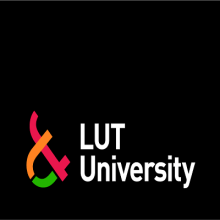World University Rankings by Subject 2025: Life Sciences
Top Life Sciences school rankings 2025: Leading universities for Biological Studies
Discover the Life Sciences Rankings results with the definitive Times Higher Education Subject Rankings 2025.
Highlights in the Life Sciences Subject Rankings 2025
- Harvard University maintains top position, with University of Cambridge securing second place
- University of Oxford places fourth while leading globally for life sciences research environment
- MIT achieves the highest teaching score for life sciences and biology
- University of Greenwich demonstrates exceptional international outlook
- Korea Advanced Institute of Science and Technology (KAIST) makes a notable entry at position 87
- Strong performance in biological sciences and veterinary studies across US and UK institutions
- Continued excellence in agricultural sciences and forestry research globally
The Life Sciences table evaluates universities across four core disciplines: Veterinary Science, Biological Sciences (including biology and biochemistry), Agriculture and Forestry, and Sport Science. This year’s rankings include 1,143 institutions from 98 countries and territories, which have been assessed based on 18 rigorous performance indicators.
Life Sciences disciplines assessed in the 2025 Rankings
- Veterinary Science: including veterinary medicine, animal health, and clinical practice
- Biological Sciences: encompassing biology, biochemistry and biotechnology
- Agriculture and Forestry: covering agricultural science, forest management and sustainable resources
- Sport Science: including sports medicine, exercise physiology and performance studies
Learn more:
The Life Sciences subject table uses the same trusted and rigorous performance indicators as the Times Higher Education World University Rankings 2025, but the methodology has been recalibrated to suit the discipline.
Our detailed 2025 Subject Rankings methodology, trusted worldwide by students, teachers, academics, governments and industry experts, is based on:
- 157 million citations
- 18 million research publications
- Survey responses from more than 93,000 scholars globally
Our analysis shows that, despite their success elsewhere, Asia’s leading universities are still struggling to compete globally in arts and humanities.
To unlock the data behind THE’s rankings and access a range of analytical and benchmarking tools, visit our data and insights page.
| Rank | Name Country/Region | Overall | Research Quality | Industry | International Outlook | Research Environment | Teaching |
|---|














